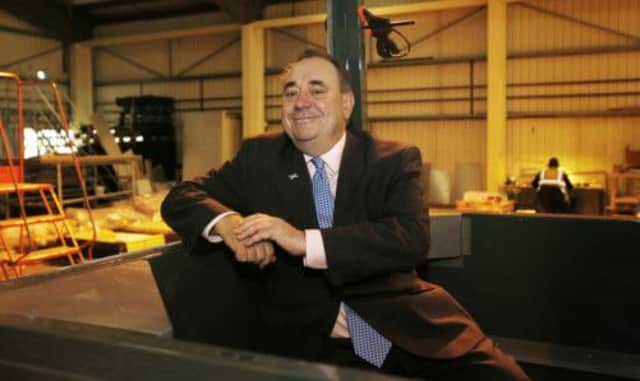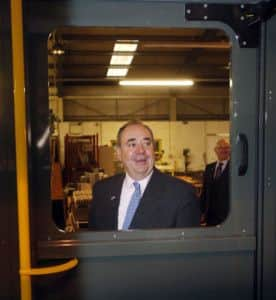Alex Salmond confident of future currency union


On a day which saw the two men travel to Dunfermline to campaign for their respective parties, Mr Salmond defended the SNP’s economic policy saying that his plans for a currency union with the rest of the UK would “prevail”.
Mr Salmond was reacting to a Scotsman article by Mr Balls, in which the Labour MP suggested that a currency deal would be unlikely should
he become Chancellor after the 2015.


Advertisement
Hide AdAdvertisement
Hide AdVisiting the Fife company Greenfold Systems, Mr Salmond claimed that Mr Balls’s position differed from that outlined by Better Together leader Alistair Darling in January this year.
“He (Balls) is obviously at great odds with Alistair Darling, who remember earlier this year said it (a currency union) was logical and desirable in January of this year,” Mr Salmond said.
“So there seems to be a conflict in the Better Together campaign or in the Labour Party. My response is that a Sterling Zone is substantially in the interests of – not just Scotland but the rest of the UK as well – and that’s what will prevail.”
Mr Salmond added: “If Ed Balls, if he ever becomes Chancellor – which of course will be after the major part of the independence negotiations – but if he ever became Chancellor he would want to operate in the best interests of the people of these islands – Scotland and the rest of the UK.”


In his Scotsman article, Mr Balls argued that it would be difficult to persuade the people elsewhere in the UK to carry the risks associated with setting up a “eurozone-style Sterling-zone”.
“Can we convince taxpayers in the rest of the UK to carry the risks that come with being a lender of last resort for Scottish banks? Is the euro experiment really worth repeating?” Mr Balls asked in his article.